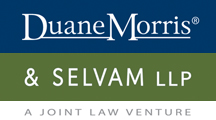7 July, 2015
2015 is a significant year for the Association of Southeast Asian Nations (ASEAN). By 31 December 2015, the 48-year-old organisation is set to finally lift all import and export duty taxes on items traded among member states. ASEAN is no minnow. With a combined GDP of USD 2.31tn, it will become the third-largest free trade area in the world.
With ASEAN growing in importance as a trading bloc, calls for greater regulation and oversight of business in the region are also widening, especially when it comes to corruption. On 18 December 2014, Transparency International, the global anti-corruption NGO, called on Southeast Asian governments to establish an ASEAN Integrity Community to protect against serious corruption risks. With some of the richest and fastest-growing economies, but also with some of the poorest people, the ethical and economic arguments for implementing and enforcing a common anti-corruption standard are compelling.
Is such a standard likely, and if so, what would it look like for the private sector?
One model, which may be adopted, is the detailed guidance already endorsed by the Asia-Pacific Economic Cooperation forum (APEC) that includes all ASEAN member states except Myanmar, Cambodia and Laos. The Complementary Anti-Corruption Principles for the Public and Private Sectors was published in 2007 and contains an anti-corruption code of conduct for private-sector business. The principles include:
- the prohibition of bribery in any form, including facilitation payments;
- an internal anti-bribery programme, reflecting the organisation’s size, business sector, potential risks and locations of operation;
- prohibitions on indirect bribery through third parties, specifically including subsidiaries, joint ventures, agents, representatives, consultants, brokers, contractors, suppliers or any other intermediary under the company’s effective control;
- CEO- or board-led implementation;
- adequate financial reporting and internal auditing;
- specific training on the anti-bribery programme, tailored to relevant needs and circumstances;
- allowing for and protecting whistleblowers; and
- regular review and updating of the anti-bribery programme.
Most companies should be very familiar with these principles as they constitute the bare minimum required of companies doing business in the United States, the United Kingdom and, increasingly, many other jurisdictions.
The reality is that for most large businesses, it is now far too risky to operate without a proper anti-bribery programme in place. The FCPA, UK Bribery Act and other anti-graft laws have an international reach.
This is why an ASEAN–wide standard for business integrity is perfectly possible. Adopting such a standard (for member states to then implement in their domestic legislation) would merely formalise what is already the norm for most large businesses.
While it is impossible to say whether ASEAN will heed the calls from Transparency International and others for a region-wide anti-corruption standard, the global trend in anti-corruption legislation appears to suggest that it is more likely than not.
For further information, please contact:
Samuel R. Sharpe, Director, Duane Morris & Selvam
ssharpe@duanemorrisselvam.com





